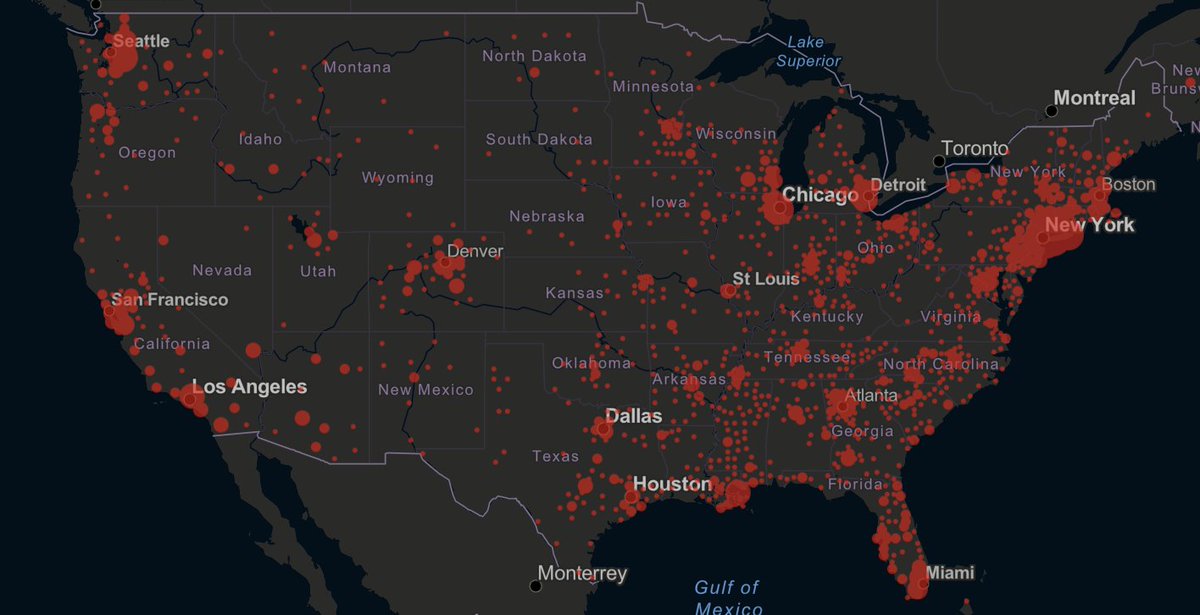Has the world lost its momentum?
A quick message to the reader
This post is the product of working the past two long years, at two large companies, in two different countries and in two different sectors. If you expect to learn something profound reading this, I can almost assure you that you will not. My motivation is only to put my frustrations to writing and to state my case against remote work. I am of the opinion that years from now, when scholars are studying the collapse of civilization as it is today, they will most certainly attribute our fall, at least in part, to social media and remote work. Today I will focus on the latter of the two topics as it is a subject near and dear to my heart.
The context
I thought COVID-19 would be over within a few weeks. God was I wrong. Despite the fact that I am not wearing a mask this week (I did have to wear one in a meeting only last week), there has been a fundamental shift to the way we live life and conduct business in this semi-post COVID world. One of those fundamental shifts has been the normalization of remote work (known as télétravail in my new home country). I know, it sounds like a dream come true. On Hacker News I frequently read individuals touting their great productivity while working remotely. They were never as productive before as they are now, sitting or lounging wherever they are, away from their colleagues and their stuffy offices while checking their morning emails. Perhaps this is entirely true, I really do not know. I can only speak to how it has felt working onsite for the past few years while many of my colleagues opted to work remotely. Maybe my experiences, being on the receiving end of remote work are unique, but I doubt this is the case.
In the beginning

When the stay-at-home orders were initially issued, my employer was deemed an essential entity and therefore continued to operate 24 hours a day, 7 days a week. My son was about to be born and I was fortunate to be provided with paternity leave as a father. Of course I took every bit of the time off and then some. Most of my time off was to help my wife with the kids (especially my son who seemed to not sleep) but I also did not want to go to work. Little was known about COVID at the time, and I would check daily, with impending doom, how many more little red dots had appeared near me on the Johns Hopkins COVID dashboard. In the end, my paid time off was running low and I decided that it was high time to return to work. I was an engineer but my position also placed me in direct supervision of approximately 15 people who were required to be onsite. Due to my position, HR gave me the option to work remotely. While the offer was tempting, I do not believe I would have, nor should have been respected by my direct reports. If they had to be onsite, I should be onsite. And so I went…

Insult to injury
I had two offices on different floors. Prior to the pandemic, I would frequently occupy the office which would allow me to focus on my work with the fewest amount of interruptions. I promise that I was not shirking my responsibilities, but aside from my day-to-day duties I also worked on many projects which required some quiet and my undivided attention. Now, with the pandemic in full swing, I did not have to play hide-and-seek to focus on my work, everything was quiet… in fact too quiet.
Since I had been out for over a month (I had been in frequent contact with my team by phone and via email), I spent my first day or two checking in on my team. How were they doing? How were their families? How has work been? This final question illicited the most responses and complaints. It seems that practically no one from management had been onsite since the stay at home order was issued (about one month). The only form of communication was coming in the form of an email sent every few days from HR and upper management to the building. These emails would announce the latest butcher’s bill of COVID positive individuals in the building. Accompanying these numbers was always a message to remind everyone that their safety was the companies number one priority. This message seemed to be the root of most ill feelings amongst those the people onsite (myself included). Given the backdrop of everything happening, the messaging did feel disengenuous. To this day I shudder thinking about those emails. If this was really the case, everyone would be home, right? But, I digress. This post is not about distasteful emails but remote work and apparently most, if not all of management, including engineering was doing just that.. working remotely.
Radio silence
Initially, the quiet was a welcome reprieve from the typical chaos which permeated our factory. I had a number of ideas in my time away from work that I wanted to bring to life and the silence allowed me to do just that. I quickly noticed that when I did need to send an email to a colleague, that responses were not as punctual as they seemed to have been before the stay-at-home. Maybe it was just me? At the time, I asked myself this question (I am not the most patient individual in the world), but today I am convinced otherwise. The more and more I needed an answer from planning, product engineering, from other engineers, the more I came to the realization that people could not really be on their computers, logged in doing real work, all day. They just couldn’t. Many of my requests were critical to customers receiving their semiconductors on time. As an example, our planning department had the capability of flagging wafer lots as a priority. A wafer lot with a priority flag of zero was the highest priority, then priority one and finally priority two. Typically, priority wafer lots were closely monitored and if placed on hold for more than 30 minutes, phones would begin to ring asking why the lot was not being processed. We had rules on the books about this very topic. I was at the very end of our factory flow in the probe and test area, so I spoke frequently with planning and would field their phone calls almost every morning. These phone calls stopped coming in almost completely. One morning I returned after a long weekend to find a priority zero lot had been on hold for longer than 72 hours and no one seemed to care. No emails, no phone calls, nothing… The 30 minute rule which was sacrosanct was being violated and nothing… Radio silence.
I could share a laundry list of examples similar to this, but I will not. I assure you that there were many many more. Needless to say that if I could feel the lack of support from all of leadership in my company, so could my direct reports. After a few months of this radio silence, my wife and I decided to take the children and relocate to France. My wife is French, so this was not a random choice. Other factors in our decision were, my wife has a large family in France (our daughter is severely handicapped so the family support is a great help), the area of France we were moving to (now live in) is much safer than Dallas, Texas (where we were living) for my children to grow up, and finally, I realized that my work was just that, work. I was payed very well, I was given the tools to create great things and was left alone for the most part to be autonomous, but it really didn’t feel like anyone cared anymore. So, after some introspection I decided that money isn’t everything and why not take the plunge and move. I will find another job where people are engaged and passionate about what they do. So we sold the house, shipped our belongings across the Atlantic and moved.
No more momentum
Fast forward a year and a half. I have found a job doing technical things in a manufacturing environment which I enjoy (always different problems and so much to be improved). I have a great team who has looked past my rudimentary but steadily improving French (I admit my improvement is slower than I would like). By all accounts, everything is better than I could have hoped. So why am I writing this now? I am writing this because the lack of engagement, enthusiasm and passion which I felt before leaving my last place of employee, seems to have followed me across the Atlantic and contaminated Europe. Email replies or messaging frequently draw slow responses. My manager requested access for me to a specific system from someone whose primary duty is to grant that access and approximately one month came and went before I could access the system. It is so ridiculous that all I can do is laugh. I feel like the world was hobbling slowly forward before the pandemic and the worldwide closures completely stopped what little momentum we had. I deal with many suppliers in other countries and I experience this lack of engagement everywhere I look with almost every company I deal with. These are not one off observations, this seems to be how the world works now.
First step towards a solution
After much thought on the subject, I have become convinced that the first tangible step employers can take to restore that momentum is by forcing their employees back onsite. I know this is an unpopular belief, but can we all honestly say that our business’ productivity right now is better than it was before the pandemic? Perhaps some institutions or companies are, but by and large I would argue that they are not. Even as a consumer it has been a struggle dealing with everyone from our old gas company, to the architect we hired to make a simple drawing (six months and the architect still has not finished our drawing). Accomplishing the simplest tasks requiring input from someone could take weeks. Is the individual on vacation? Does the person have COVID? Maybe they work in another group now? I really don’t know. If we could only begin communicating with each other again, we could go back to solving good problems. And for me, walking to my colleagues office to quickly get a question answered seems so much more efficient than sending an email and waiting. I have grown tired of waiting.
“No man is an island entire of itself; every man is a piece of the continent, a part of the main; if a clod be washed away by the sea, Europe is the less, as well as if a promontory were, as well as any manner of thy friends or of thine own were; any man’s death diminishes me, because I am involved in mankind. And therefore never send to know for whom the bell tolls; it tolls for thee.”
-John Donne: No Man is an Island

Comments